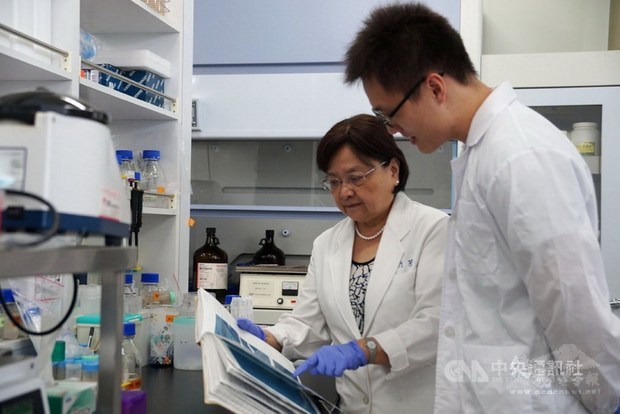
Tainan, March 22 (CNA) A retired National Cheng Kung University (NCKU) professor has become the first Taiwanese to win a World Organization for Animal Health (OIE) honorary award, the school said Sunday.
The OIE confers the award annually for outstanding contributions to the control of animal disease and/or veterinary public health, and Luo Chu-fang, a former chair professor at NCKU, was one of the winners in 2020.
She was honored for her research into shrimp diseases that has led to her lab earning renown for studying new shrimp diseases and the development of diagnostic tools to detect viral diseases in shrimp, the school said in a statement.
Luo was previously affiliated with National Taiwan University (NTU) before transferring to NCKU in 2013 and had taught there until she retired last month.
Despite her retirement, Luo's enthusiasm for research remains unabated, and she is now busy establishing the country's first standardized shrimp breeding area in Hualien, the statement said.
Luo had no experience in studying crustaceans until 1994, when she witnessed the major impact of the white spot syndrome virus in shrimp on the aquaculture industry and decided to dive into the field.
Her research at the time on the pathogenic mechanisms of white spot disease (WSD), an infection from the white spot syndrome virus, was very important, according to a shrimp industry player.
Scientists originally thought WSD was caused by a baculovirus, but Luo used DNA sequencing and viral pathogen assembly mechanisms to determine it was caused by a new virus.
Because of her research, the lab she led was designated as a reference lab by the OIE, according to Luo.
The retired professor said she did most of her basic research and published several papers on shrimp breeding while teaching at NTU, and then after transferring to NCKU used the results to help aquaculture farmers develop their businesses.
During her time at NCKU, Luo studied the breeding of specific pathogen free (SPF) shrimp and cultured shrimp resistant to viral diseases, set up an R&D center for shrimp aquaculture and built a high-tech shrimp farm to promote a new form of shrimp farming management.
In 2013, Luo collaborated with researchers in Thailand to develop diagnostic kits for the detection of viral diseases in shrimp that have been of tremendous benefit to the marine biotechnology industry and shrimp aquaculture, according to NCKU.